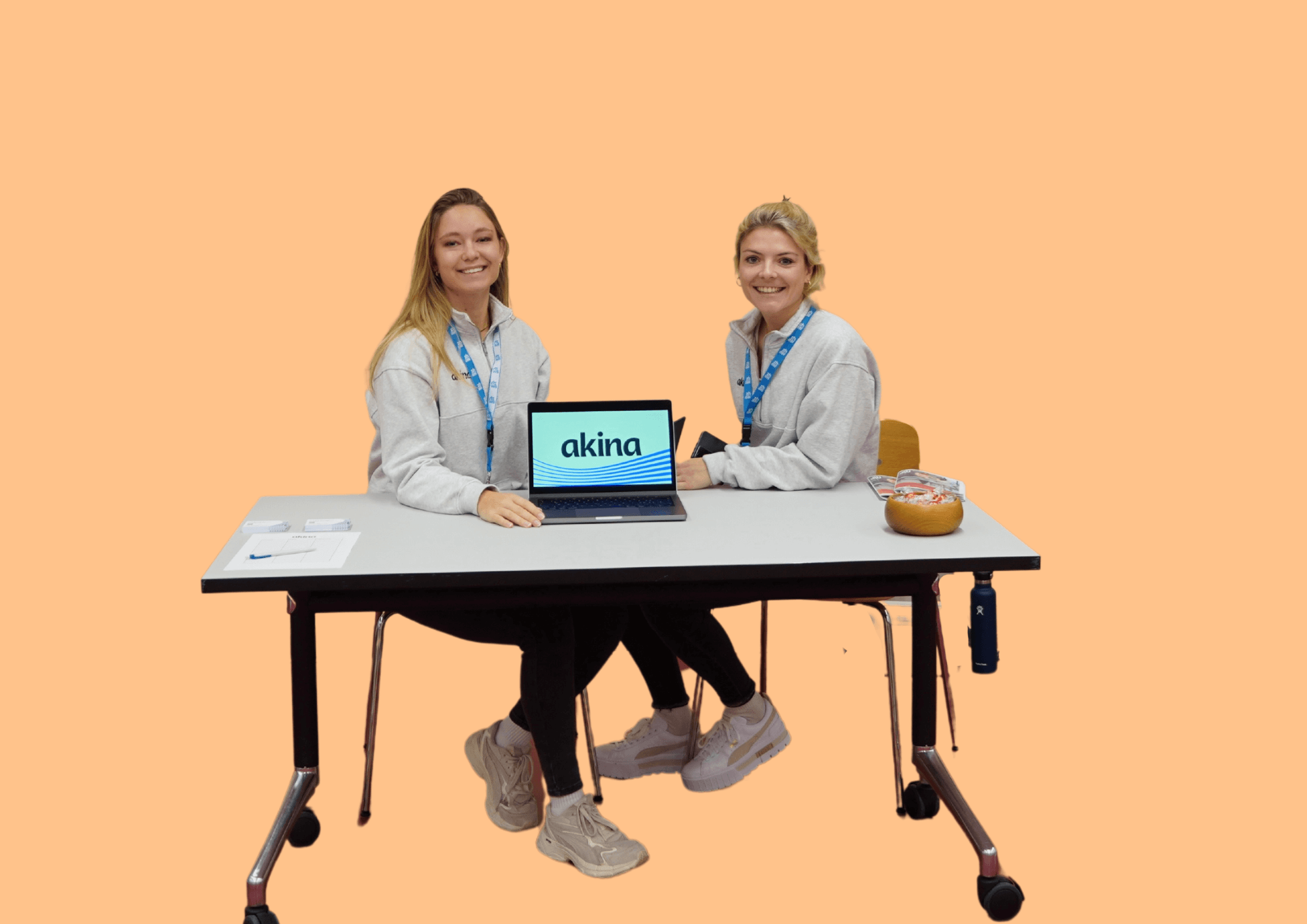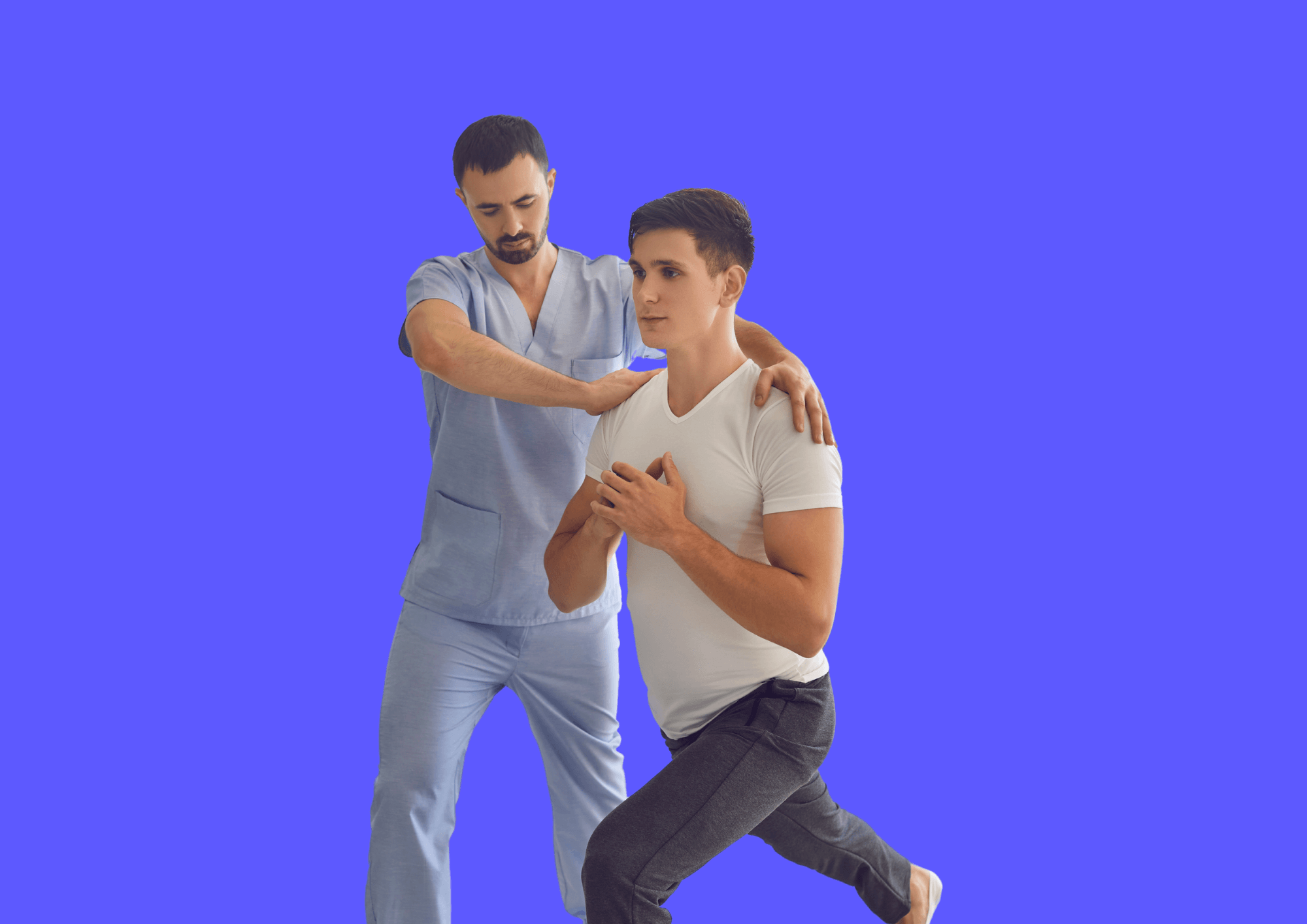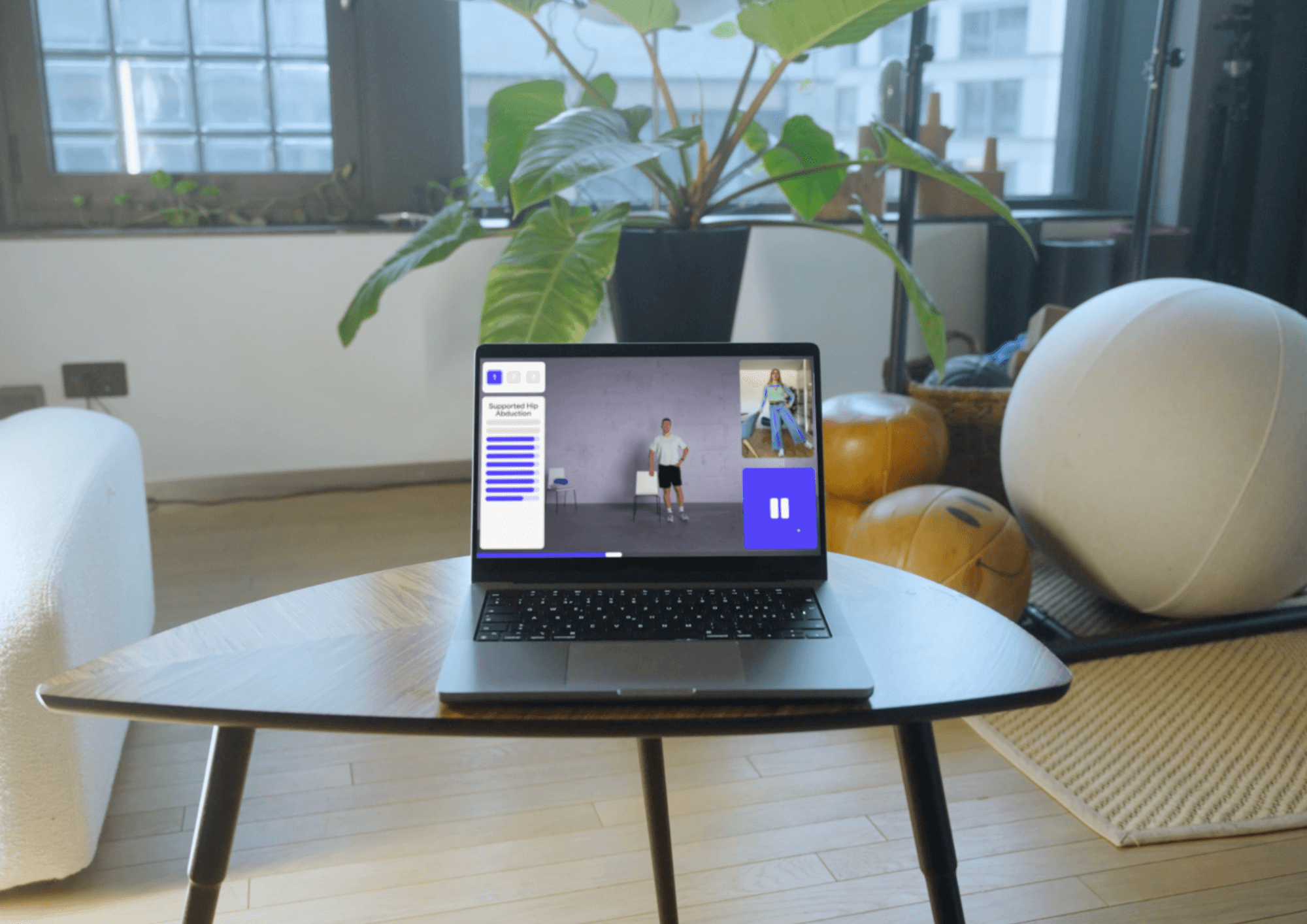Physiotherapy in transition: Half as long, twice as efficient?
Akina was a guest at this year's ZHAW Symposium on Acute Inpatient Physiotherapy. Find out in this article what we took away from the event and how we want to use our Akina Cloud software for a progressive healthcare system.

This year's symposium on acute inpatient physiotherapy organized by the Zurich University of Applied Sciences (ZHAW) will focus on changes in Swiss physiotherapy and provide information on the current state of science. We were able to present our product Akina Cloud and benefit from the insightful presentations. In the following, we would like to reflect on some concepts, thoughts and thought-provoking ideas together.
The subject of discussion
Physiotherapists today are forced to do increasingly more work in less time. One of the reasons for this is that the length of hospitalization of patients has been greatly reduced in recent years - as a result, more conservative follow-up care is needed in an outpatient setting. Of course, patients' treatment needs should still be met - ideally with sustainable and efficient treatment.
But how is it possible to meet these expectations under the enormous time pressure? To what extent does the focus of physiotherapy need to shift, and which approaches are efficient and sustainable? And how can patient compliance be increased? These were the questions that were addressed at the symposium and we would like to shed light on how Akina can provide a possible solution to these problems.

The key takeaways from the presentations
New Health Care Management
The demands in the healthcare world are becoming ever more challenging, but many organizations are not (yet) well enough equipped for the dynamic, faster-moving world. One possible solution to this is the so-called New Health Care Management, in which seven modern management concepts are intended to help shape the healthcare system more positively in the future.
The benefits of digital innovations
As part of this new concept, therapists are encouraged to hand over responsibilities in some areas of physiotherapy to certain systems and technologies that can make their lives a little easier (digital health).
Strong patient-therapist relationship
An important part of this is so-called "motivational interviewing". Motivational interviewing is described as "a directive, client-centered counseling style that elicits behavior change by helping clients explore and resolve ambivalence". It has been used successfully for conditions such as diabetes and asthma as well as addictions and cardiac rehabilitation. Studies have shown that motivational interviewing achieves better therapy results compared to traditional approaches.
Funding the change
Physiotherapy has limited resources. It is therefore all the more important that care structures in the healthcare system are better coordinated in order to be able to finance new innovations. Patient-Reported Outcome Measures (PROMS) are intended to make the benefits of physiotherapy visible and thus ensure fair remuneration for physiotherapists (see also: Tariff intervention in Swiss physiotherapy).
Holistic healthcare
Treatment may begin in hospital, but in most cases it goes far beyond that. Aftercare and rehabilitation following a surgical procedure is extremely important in order to rebuild a patient's resilience. Physiotherapy is designed to do this efficiently and sustainably.

The approach to the solution
With our AI-supported Akina Cloud software, we aim to contribute our part to a progressive healthcare system. Our web application guides the patient during therapeutic training at home. Our AI recognizes the patient's movements through the webcam of the smart device used and gives them real-time feedback on their execution. This optimizes training at home, relieves pain and promotes mobility. In addition, the training is enriched with educational content to support knowledge transfer and thus help the patient achieve greater safety, motivation and efficiency.
However, Akina is not limited to digital guidance of the patient: Physiotherapists can asynchronously evaluate the training performed by the patient in report form and further tailor it to their individual needs. This strengthens the therapist-patient relationship, further promotes the patient's motivation and adherence and increases the success of the therapy accordingly.
The program is based on the Remote Therapeutic Monitoring (RTM) model, which has already been well received in the USA and is used by over 16% of physiotherapists. They benefit from 7-10 paid working hours per week, which they can perform flexibly thanks to RTM. The use of Akina can also be billed via health insurance companies, which ensures a diversification of the physiotherapists' billing catalog, thus making the profession more attractive.
With Akina, physiotherapists can carry out part of their work remotely and asynchronously and reduce the number of in-person sessions by using the tool to support patients more in their training at home. Patients benefit from more efficient training and faster rehabilitation. And this brings us full circle to the motto "Half as long, twice as efficient".
